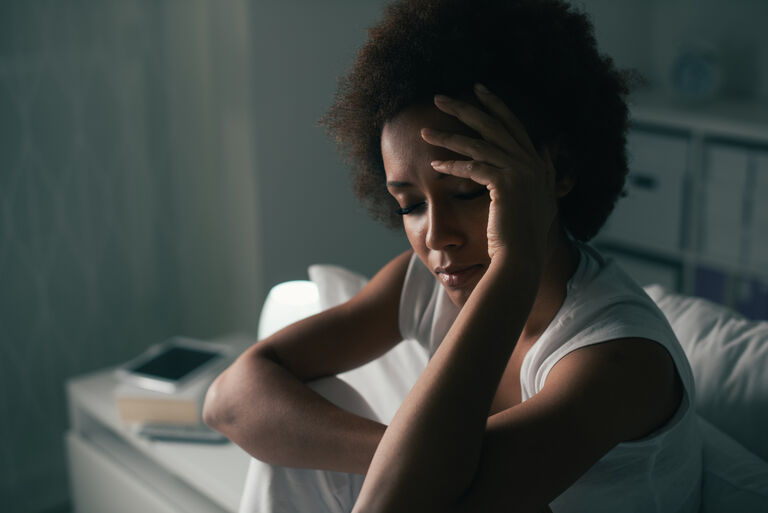Tempur® sleep vs mental health survey 2019 for mental health awareness week

Today’s busy and fast-paced society is taking a toll on our health; both physically and mentally. With growing numbers of people reporting stress, poor quality sleep, anxiety and other issues, as a result we are now talking more openly about mental health and wellbeing and how this is affected by our work, life and sleep habits.
To dig deeper into why our sleep may be suffering, TEMPUR® has conducted its first ever Sleep vs Mental Health Survey in the UK. The aim of the survey was to find out what effect sleep has on mental health and wellbeing, including what keeps people awake at night, how they rate their quality of sleep, and what effects poor sleep has on their daily lives. The survey was conducted on 2,000 UK respondents aged 18+.
TEMPUR® will renew their partnership with the Mental Health Foundation for Mental Health Awareness Week 2019, which will take place between 13-19 May. The focus for this year is body image.
STRESS AND ANXIETY KEEP BRITS AWAKE AT NIGHT
The results from the survey revealed key insights into our sleeping habits – most notably, that two-thirds of Brits (64%) lie awake at night with something on their mind. The two major culprits were stress (27%) and anxiety (26%), topping other late-night concerns such as family worries, money worries and work stress.
When we take into consideration that 27% of respondents regularly check emails or messages and 24% regularly use social media before going to bed, it’s no surprise that our constant switched-on status is causing us to feel stressed.
TROUBLE FALLING AND STAYING ASLEEP
The National Sleep Foundation’s recommendation for adults aged 18-25 is seven-nine hours per night, and seven-eight hours for 26-64-year olds. Over a quarter of Brits (27%) get less than six hours sleep per night, and 9% get less than five. This shows that the majority of Brits are not getting the recommended amount of sleep.
In addition to this, on average it takes us 20 minutes to fall asleep. However, one in sixteen Brits (6%) admit that it takes them over an hour to fall asleep. Once we’ve managed to drift off, some of us find it difficult to stay asleep, with the average Brit waking up twice each night, and one in ten (11%) saying they wake up four or more times every night.
POOR QUALITY SLEEP AFFECTS OVERALL WELLBEING
A quarter of Brits (25%) rate their sleep as poor or inconsistent, which is concerning when added to the fact that a third (33%) say this poor-quality sleep affects their daily routine.
Further, three in ten (30%) said that poor quality sleep has an impact on their mental health. Younger age groups suffer the worst, with the statistic rising to just over half (51%) of those aged 18-24 admitting that poor quality sleep affects their mental health.
Poor quality sleep also affects our work (21%), fitness (20%) and diet (18%), showing just how important sleep is for overall health and wellbeing, as well as our mental health.
IMPROVING SLEEP QUALITY
When it comes to attempting to sleep better, half of Brits (51%) have tried exercise to improve their sleep quality, while a quarter (26%) have tried meditation.
The survey revealed that one in seven Brits (14%) has sought professional help for poor sleep, while a further 15% said that they would consider reaching out for help to improve sleep quality. A quarter of Brits (27%) have sought help for their mental health, with this figure rising to 36% of those aged 18-24.
So, although a quarter of Brits are affected by poor-quality sleep, the survey showed that many are attempting to do something about it. Ways of improving sleep are becoming ever-more popular, including apps focusing on mindfulness or meditation, yoga, natural remedies and trying to naturally wind down before bed.
THE IMPORTANCE OF SLEEP FOR MENTAL HEALTH
Some positives are to be taken from the survey regarding how we sleep. Seven in ten Brits (72%) say they consider a new mattress to be an investment to their mental and physical health. This shows how we are starting to recognise sleep as beneficial for our mental health as well as our physical health.
However, 21% of respondents admitted that they did not know what type of mattress they currently use. To maximise sleep quality, TEMPUR® recommends taking the time to choose the perfect mattress for you.
MENTAL HEALTH FOUNDATION PARTNERSHIP
Overall, the survey provides vital information regarding our sleep, mental health and wellbeing. Although many of us suffer from poor quality sleep and are kept awake worrying about our health, jobs, or relationships, the results show that many of us are keen to do something about it, either through techniques such as exercise or meditation, or by seeking professional help.
If you are keen to improve your quality of sleep, try TEMPUR®’s sleep tips for more restorative sleep to improve mental and physical wellbeing.
TEMPUR® will be fundraising for the Mental Health Foundation throughout May. Visitors to TEMPUR® stores wanting to show their support can purchase a Mental Health Foundation ribbon for a suggested donation of £2.
For more information on the Mental Health Foundation, Mental Health Awareness Week and for tips, guides and resources, visit https://www.mentalhealth.org.uk




